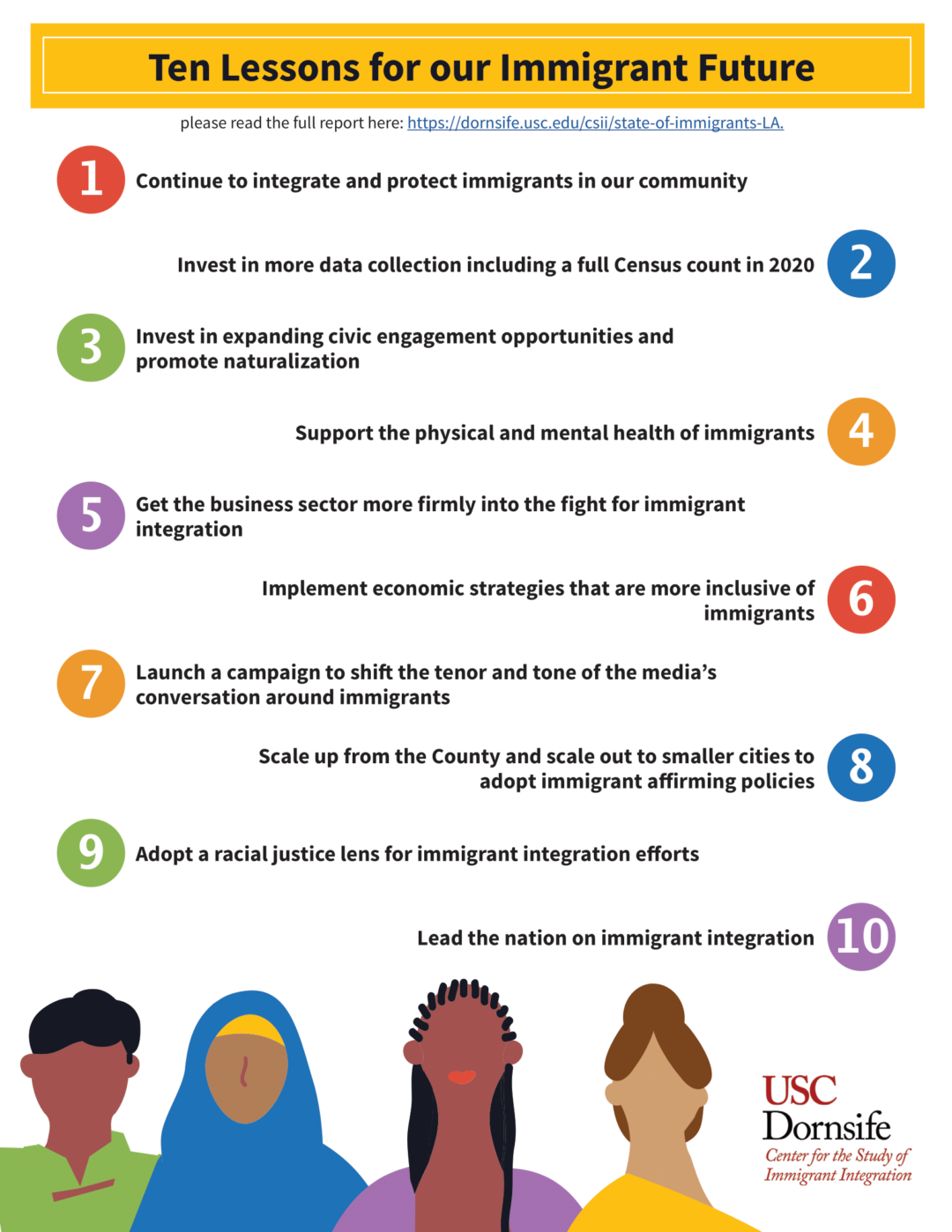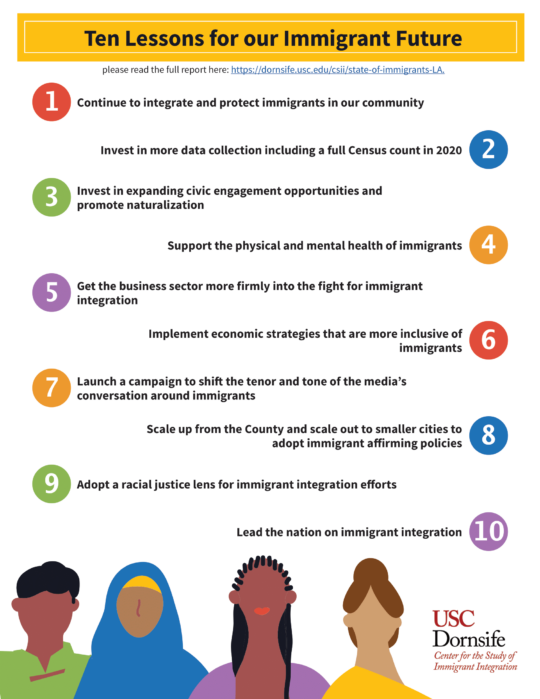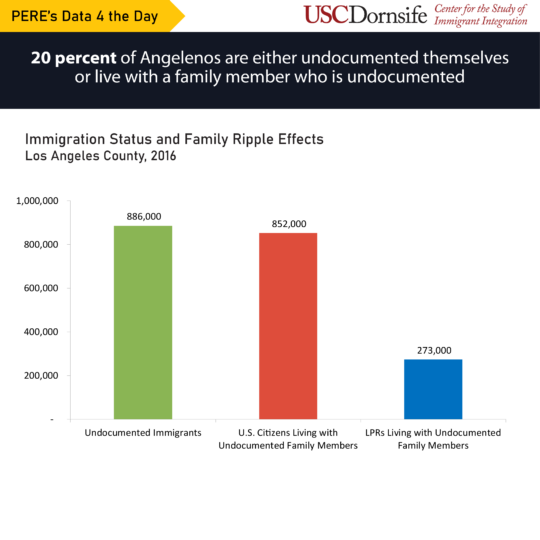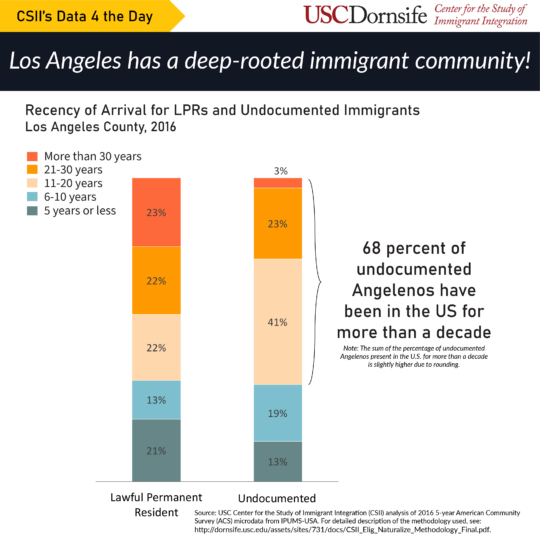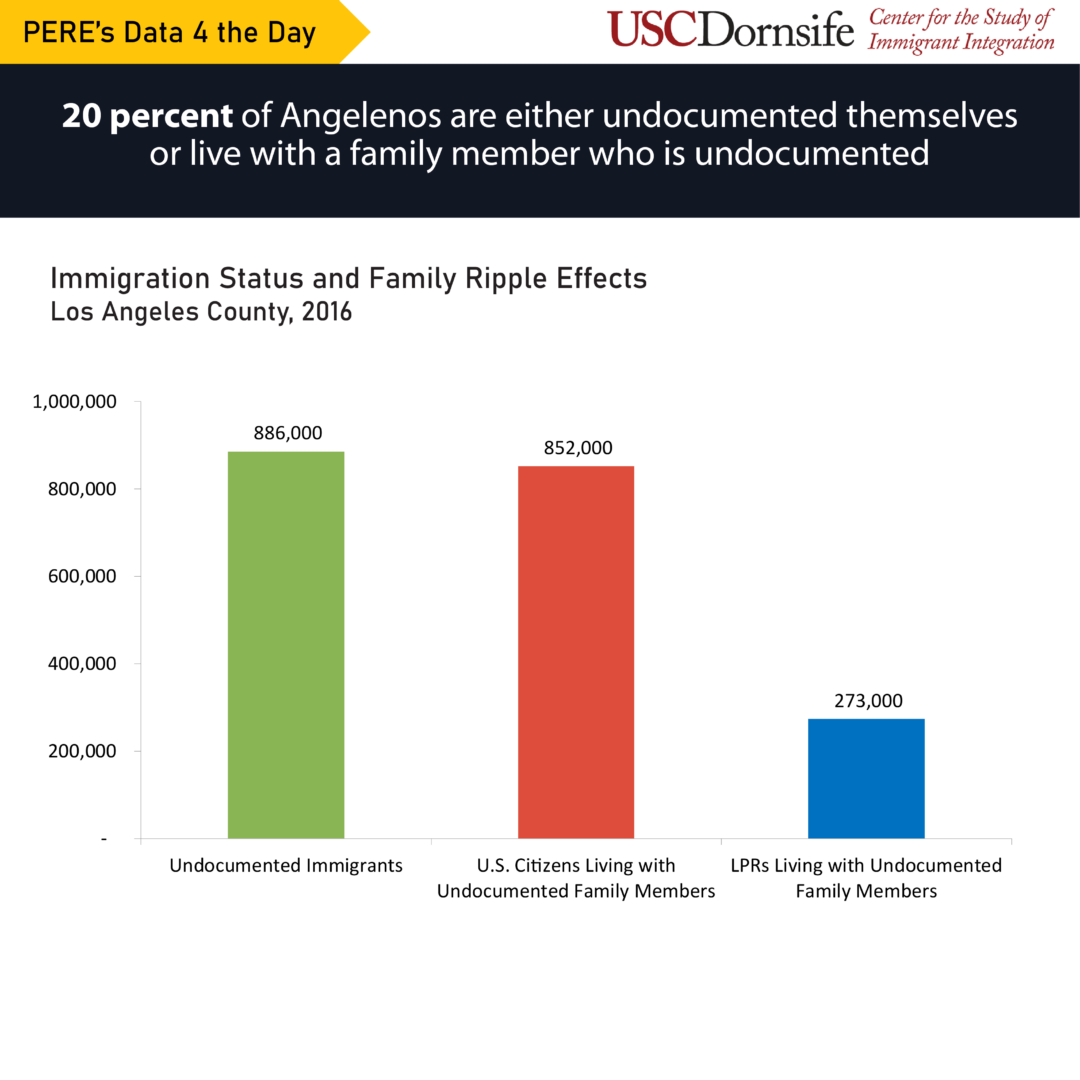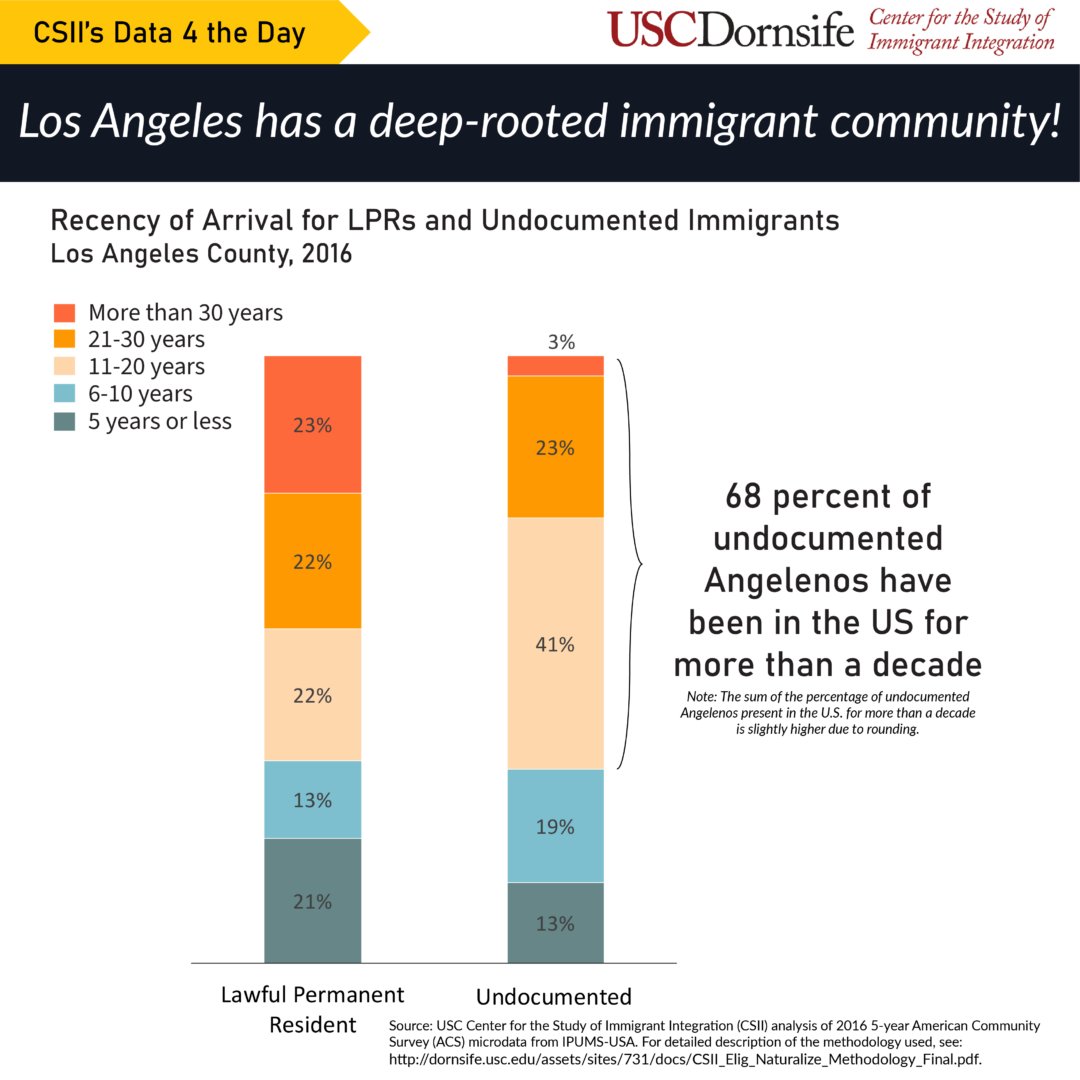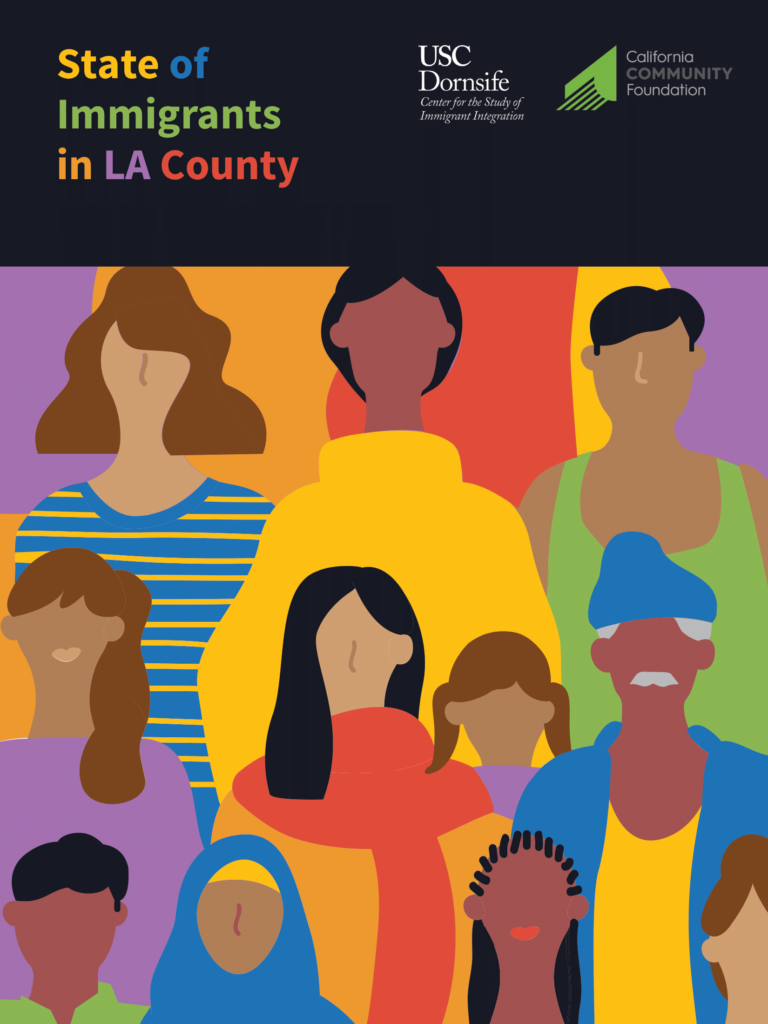
January 9, 2020
Authors: Dalia Gonzalez, Sabrina Kim, Cynthia Moreno and Edward-Michael Muña
By the California Community Foundation and USC Center for the Study of Immigrant Integration (CSII)
Please note: reports dated earlier than June 2020 were published under our previous names: the USC Program for Environmental and Regional Equity (PERE) or the USC Center for the Study of Immigrant Integration (CSII).
Immigrants from all over the globe have created a home in L.A. County for generations. In that time, both immigration policies and immigrant communities themselves have evolved dramatically. Some immigrant groups are large and long-settled, while others are newer and growing. A subset of immigrants have accessed higher education, invested in homes, or started a business. In these groups of homeowners, entrepreneurs, college graduates, and workers there are immigrants who have naturalized, who are lawful permanent residents, or who are undocumented.
Despite the important role of immigrants in our community, there has been an absence of a comprehensive, compassionate response to immigration on the federal level. Furthermore, there have been a slew of explicitly anti-immigrant federal policy changes including: determining eligibility for naturalization based on public service utilization, lowering caps for refugee resettlement, raising naturalization fees and enacting other restrictions, and attempting to include a citizenship question on the 2020 Census.
It is with this backdrop that The Center for the Study of Immigrant Integration and the Council on Immigrant Integration, a body that pushes for a society fully inclusive of immigrant communities, launched the State of Immigrants in Los Angeles (SOILA) report. SOILA documents how immigrants are faring economically, if they are connected to and engaging in civic life, and how L.A. County creates a welcoming environment. It attempts to cover many if not all facets of immigrant life and provides a base for further inquiry, action, and forthcoming work for L.A. County immigrant-serving institutions.
Download report links
Data Visuals
Ten Lessons for Our Immigrant Future
